Huskies have a high prey drive and may see small dogs as prey. Proper training and socialization can help address this behavior.
| Predatory Instinct | Huskies have a strong predatory drive, inherited from their ancestry as sled-pulling dogs and hunters, that may sometimes cause them to see small animals as prey. |
|---|---|
| High Prey Drive | This breeds prey drive score can be above 75%; it plays a role in why a Husky might chase and potentially attack small dogs. |
| Lack of Socialization | Without proper socialization, especially during the critical period of 3 to 12 weeks of age, Huskies may not learn to properly interpret and react to the behaviors of smaller dogs. |
| Inter-Dog Aggression | A small percentage of Huskies may display inter-dog aggression which could be directed towards smaller dogs. This can be due to behavioral issues or lack of training. |
| Size and Play Style | The Huskys larger size and rough play style can seem aggressive to smaller dogs. In some cases, rough play may escalate to actual aggression. |
| Resource Guarding | Huskies might show aggression towards small dogs if they feel their resources (food, toys, space) are threatened. |
| Stress or Anxiety | Stressful conditions or separation anxiety may lead to unexpected aggression in Huskies, including attacks on smaller dogs. |
| Inadequate Training | A Husky without firm and consistent training may not have the necessary discipline to manage its impulses and could lash out at smaller dogs. |
Why does my husky attack small dogs
Huskies are renowned for their strong predator instinct, which can deeply influence their interactions with small dogs. The breed’s history as sled dogs in harsh environments has ingrained a powerful prey drive within them.
This drive compels them to see smaller animals, including small dogs, as potential prey. This instinct can lead to chasing, nipping, or even aggressive behavior towards smaller dogs.
Understanding and acknowledging this fundamental aspect of a Husky’s nature is crucial for addressing and managing their behavior around smaller animals. It’s essential to approach training and socialization with this understanding to effectively address the predator instinct and minimize the risk of aggression towards small dogs.
Husky owners need to implement targeted strategies that account for this instinctual behavior to ensure the safety and well-being of both their Husky and smaller canine companions..
Understanding the hunting and predator instincts of Huskies is essential for ensuring their harmonious coexistence with smaller pets and animals. For more insights on creating the optimal environment for your Husky, whether they should have a companion or thrive on their own, explore our detailed guide on the intricacies of Husky care in pairs versus solo.
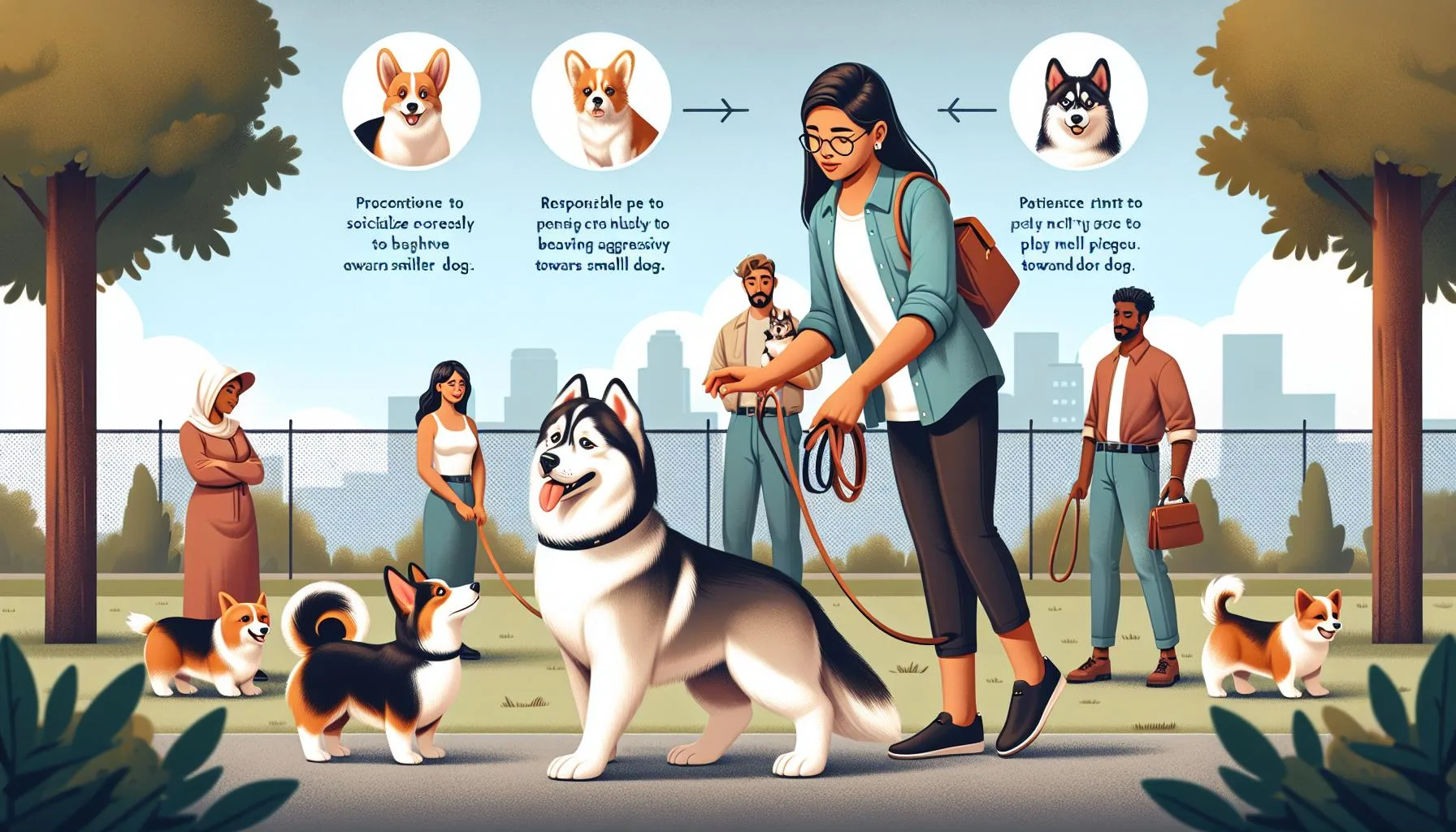
Importance of Early Socialization
Why does my husky attack small dogs
Early socialization plays a crucial role in shaping a husky’s behavior towards small dogs. Properly introducing and socializing huskies to dogs of various sizes from a young age is essential to prevent overly aggressive behavior.
It helps them learn appropriate interactions and develop positive associations with smaller dogs. Lack of early socialization can lead to misconstrued behaviors and tendencies.
This is why does my husky attack small dogs become a pertinent question for dog owners. Early exposure to different sizes of dogs helps in fostering a sense of familiarity and reduces the likelihood of aggressive tendencies.
It instills a level of comfort and understanding in huskies, ensuring that they perceive smaller dogs as companions rather than prey. Additionally, early socialization helps in building confidence in interacting with a diverse range of dogs, promoting their ability to coexist harmoniously.
Socialization should be an ongoing process, reinforcing positive experiences and preventing potential aggressive behavior towards smaller dogs..
Understanding the social needs of Huskies is just the beginning of uncovering their complex behaviors. Dive deeper into the temperament of these majestic dogs and explore their capacity for loyalty and protection by reading about their potential as guardians and loyal companions.

Recognizing Aggression Triggers
Identifying the triggers that may prompt a Husky to attack small dogs is crucial for understanding and addressing this behavior. Various factors can contribute to aggression, including specific behaviors and environmental influences.
For instance, a Husky’s prey drive could be activated by the quick movements or high-pitched sounds of smaller dogs, as these characteristics mimic those of prey animals. Additionally, a lack of early socialization with small dogs can lead to fear or anxiety, triggering defensive or aggressive responses.
Environmental stressors, such as unfamiliar places or crowded settings, might also heighten a Husky’s reactivity towards smaller dogs. Understanding and recognizing these triggers is the first step in implementing targeted training and management techniques to prevent and address aggressive behavior.
It’s important to observe your husky’s behavior closely in various situations to identify any potential triggers and take proactive measures to address them.
Identifying the triggers that may prompt a Husky to attack small dogs is crucial for understanding and addressing this behavior. Various factors can contribute to aggression, including specific behaviors and environmental influences.
For instance, a Husky’s prey drive could be activated by the quick movements or high-pitched sounds of smaller dogs, as these characteristics mimic those of prey animals. Additionally, a lack of early socialization with small dogs can lead to fear or anxiety, triggering defensive or aggressive responses.
Why does my husky attack small dogs
Environmental stressors, such as unfamiliar places or crowded settings, might also heighten a Husky’s reactivity towards smaller dogs.
Understanding and recognizing these triggers is the first step in implementing targeted training and management techniques to prevent and address aggressive behavior. It’s important to observe your husky’s behavior closely in various situations to identify any potential triggers and take proactive measures to address them.
To comprehend the full range of husky behavior, it's important not just to understand aggression triggers but also their unique communication patterns. Dive deeper into the fascinating world of your Husky's expressive capabilities with our detailed guide on teaching them to vocalize in a human-like manner: "Discover How to Teach Your Husky to Imitate Human Speech!".
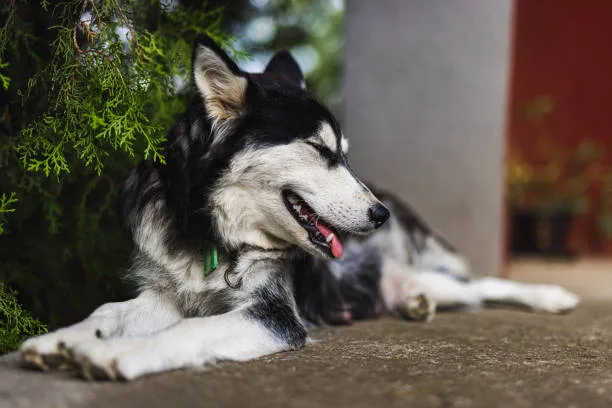
Establishing the Role of Dominance and Hierarchy
Huskies are known for their strong pack mentality, which influences their interactions with other dogs. The breed has a natural inclination towards establishing dominance and hierarchy within a group.
When a husky encounters smaller dogs, it may perceive them through the lens of its pack instincts, leading to potentially challenging behavior. In the wild, dominance plays a crucial role in the survival and well-being of the pack, and this instinct can manifest when huskies interact with smaller dogs.
It’s essential to understand this aspect of their behavior in order to address and manage any potential aggression. By recognizing and acknowledging the role of dominance and hierarchy in a husky’s mindset, owners can take proactive steps to work with their dog’s instincts and foster positive interactions with smaller breeds.
Building a strong foundation of trust and leadership through consistent training and reinforcement can help reframe the husky’s perception of smaller dogs and diminish aggressive behavior..
The intricate dynamics of a husky's behavior toward smaller dogs is reflective of their innate pack mentality, often leading to fascinating displays of dominance and social structure. For more on these captivating canines, delve into our comprehensive guide on nurturing an Albino Husky puppy, which offers invaluable advice for their well-being. Explore exquisite care strategies for Albino Husky puppies.
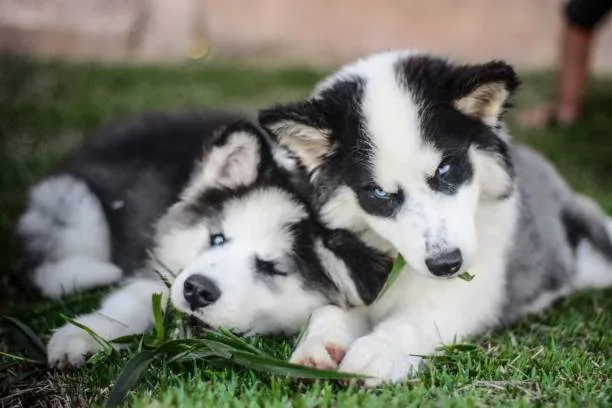
Positive Reinforcement Training Techniques
Positive reinforcement training techniques are highly effective in teaching Huskies to curb aggressive behavior towards small dogs. By using positive reinforcement, such as treats, praise, and rewards, owners can communicate to their Husky that peaceful interactions with small dogs are desirable.
When a Husky exhibits non-aggressive behavior around small dogs, it’s important to immediately reward them with treats and verbal praise to reinforce the positive behavior. Consistency is key in positive reinforcement training, as it helps the Husky associate good behavior with positive outcomes.
Additionally, engaging in activities that promote positive encounters, like supervised play sessions and controlled introductions to small dogs, can further solidify the training. It is crucial to avoid punishment-based training and instead focus on creating a positive and rewarding environment for the Husky to learn and thrive.
Remember, positive reinforcement can greatly contribute to reshaping a Husky’s behavior and transforming their responses towards small dogs..
For comprehensive insights on adapting your Husky to apartment living and more tailored care strategies, explore our detailed guide. Delve into the nuances of cohabiting with these spirited canines by visiting Husky Care Tips for Apartment Dwellers.

The Impact of Exercise and Mental Stimulation
On Medium about: Why does my husky attack small dogs
Ensuring that your husky receives ample exercise and mental stimulation is crucial in curbing their inclination to chase and possibly attack small dogs. Huskies are an energetic breed with a history of sled-pulling and running, and when their exercise needs are not met, they can become restless or seek stimulation in undesirable ways.
Sufficient physical activity, such as long walks, jogs, or engaging in dog sports, helps in burning off excess energy and decreasing the likelihood of aggressive behavior towards smaller dogs. Additionally, mental stimulation through interactive toys, puzzle games, and training exercises is essential for keeping your husky’s mind occupied and preventing boredom-induced behavior, including chasing or attacking smaller animals.
Meeting these needs can significantly diminish the urge to pursue small dogs and contribute to a more harmonious relationship between your husky and other pets. Remember, a well-exercised and mentally stimulated husky is a happier and more balanced companion..
To ensure your Husky maintains good behavior around smaller pets, integrating regular physical activity and brain games into their routine is vital. Meanwhile, for insights into safe and tasty treats that can complement your Husky's diet and keep them healthy, explore our featured article, "Discover the Truth: Is Peanut Butter Safe for Your Husky?"
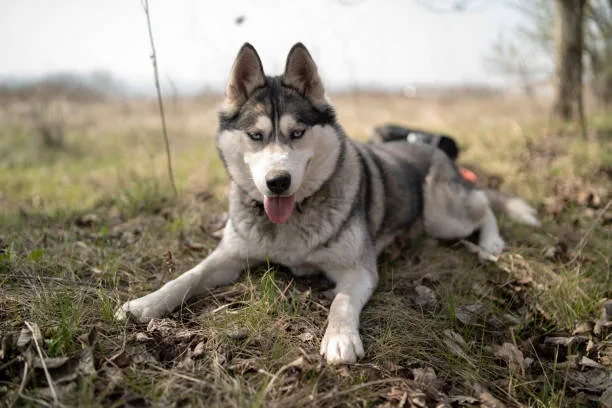
Utilizing Distraction and Redirecting Techniques
On Quora about: Why does my husky attack small dogs
To effectively address the question “Why does my husky attack small dogs,” it’s essential to implement distraction and redirecting techniques in their training regimen. Firstly, it’s important to use high-value treats or toys to redirect your husky’s attention away from small dogs when they start fixating on them.
By offering a positive alternative, such as a favorite toy or a treat, you can divert their focus and energy towards a more appropriate target. Additionally, incorporating obedience commands, such as “look at me” or “sit,” can help to shift their attention away from potential prey and towards you as their pack leader.
Consistency is key when employing these methods, and over time, your husky will learn to respond to these cues, ultimately reducing the likelihood of aggressive behavior towards small dogs. It’s important to note that these distraction and redirecting techniques should be practiced in a variety of environments to ensure their effectiveness in real-life situations.
Always prioritize safety and consult with a professional trainer if needed to fine-tune these techniques for your specific husky’s needs..
Discover more about the nature of your husky's behavior and delve into the ancestry that shapes their instincts. Explore our detailed guide on the connection between huskies and wolves, and how it informs their care and training needs at understanding husky lineage and care.
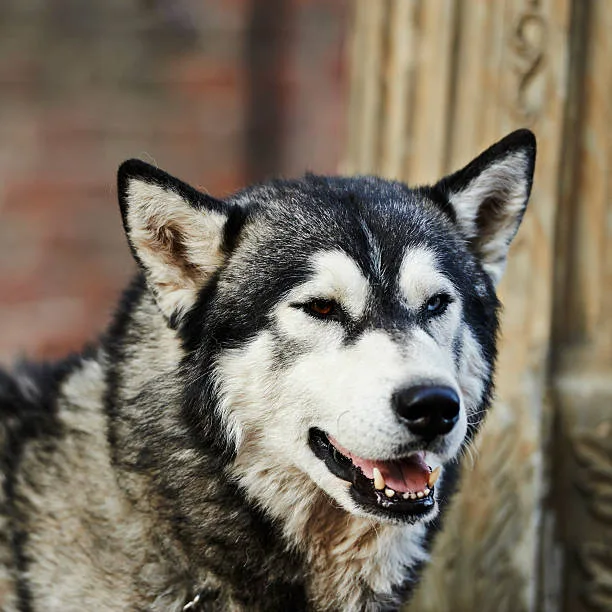
Creating Safe Introductions to Smaller Dogs
Introducing a Husky to smaller dogs requires a careful approach to ensure positive interactions. It is crucial to create a controlled environment that minimizes potential triggers for aggression.
First, start with separate introductions in a neutral territory unfamiliar to both dogs. This will help alleviate any territorial instincts and reduce the likelihood of conflict.
Additionally, consider utilizing a secure, fenced area to provide a safe space for the initial meetings. When bringing the dogs together, use positive reinforcement techniques to reward calm and friendly behavior.
Gradually increase the time they spend together, always closely supervising their interactions. By allowing the dogs to gradually become accustomed to each other, in a controlled and positive setting, you can foster a safe and harmonious relationship between your Husky and smaller dogs, reducing the likelihood of aggressive encounters in the future.
Reddit Why does my husky attack small dogs
Remember to always prioritize the safety and comfort of both dogs, and seek professional guidance if needed to ensure successful introductions.
Should you be curious about the sizing and ideal care practices for smaller Husky breeds, gaining insights can further contribute to smoother introductions and better household dynamics. Discover the nuances of living with a mini Husky and ensure a harmonious environment by exploring our detailed guide: Understanding Mini Husky Care and Size Requirements.
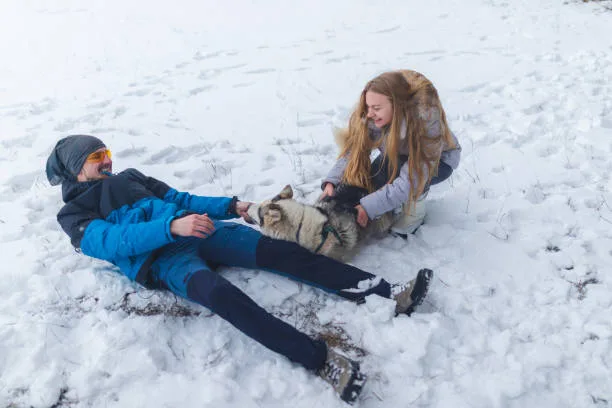
Using Behavioral Modification Therapy
Behavioral modification therapy can be a crucial tool in addressing aggressive behavior in Huskies towards smaller animals. By working with a professional dog behaviorist or trainer, owners can identify the root causes of the aggression and develop a tailored program to modify the Husky’s behavior.
This may involve desensitization techniques to change the Husky’s response to small dogs and reshape their reactions. Additionally, behavioral modification therapy focuses on teaching the Husky alternative, non-aggressive behaviors through positive reinforcement and reward-based training methods.
This approach aims to shift the Husky’s mindset and responses, ultimately reducing the likelihood of aggressive behavior towards smaller dogs. Furthermore, behavioral modification therapy emphasizes consistent training and patience, as it takes time to modify deeply ingrained behaviors.
American Kennel Club: Why does my husky attack small dogs
In summary, behavioral modification therapy is a valuable resource for owners seeking to address their Husky’s aggressive tendencies towards smaller animals. Through the guidance of a professional, this approach focuses on identifying the root causes of the aggression and implementing tailored strategies to reshape the Husky’s behavior through positive reinforcement and consistency.
Exploring behavioral modification techniques offers hope in addressing and altering hostility in pets towards smaller creatures. To delve deeper into the nature and habits of a specific breed, such as the distinctive characteristics of the Agouti Husky compared to its Siberian counterpart, explore their unique traits and common features.
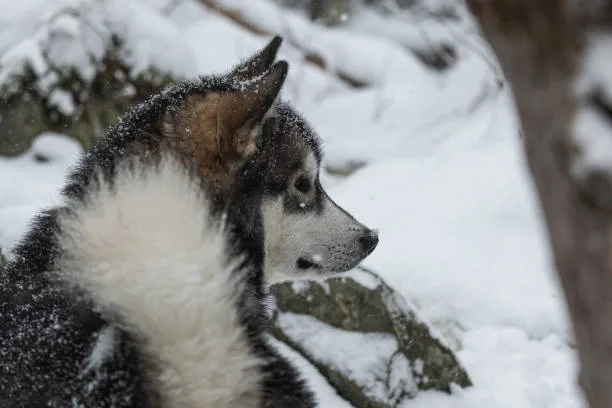
Implementing Strong Recall Commands
Owners play a crucial role in preventing their Huskies from attacking small dogs by implementing strong recall commands. This involves consistent and persistent training to ensure that the Husky responds reliably to the owner’s call, particularly in situations where the dog might encounter smaller animals.
Recall training should start in a controlled environment, gradually introducing distractions such as other dogs, to reinforce the Husky’s response to the command. Positive reinforcement, such as treats and praise, can be used to incentivize the Husky to return when called, reinforcing the desired behavior.
It’s essential to practice recall commands regularly to maintain the Husky’s responsiveness, helping to ensure that the dog can be recalled safely in potentially challenging situations. Regular training sessions, patience, and consistency are key elements in developing reliable recall commands and preventing aggressive behavior towards small dogs..
Mastering recall commands is step one in ensuring the safety of both your Husky and surrounding pets. For insights on creating a secure and comfortable space for a larger canine companion, explore our detailed guide on selecting the appropriate crate size for your Labrador.

Seeking Professional Help When Needed
If you find yourself asking “Why does my husky attack small dogs?” and you’re struggling to address the aggressive behavior, it’s crucial to recognize when professional assistance is needed. Seeking help from a certified dog trainer or behaviorist can provide valuable insight and guidance in preventing aggression in huskies.
Professional assistance becomes necessary when the aggression is persistent despite your best efforts to manage it. A qualified trainer or behaviorist can conduct a comprehensive assessment of your husky’s behavior and tailor a specific training program to address the underlying causes of the aggression.
Additionally, their expertise can help you understand the dynamics of pack behavior and provide you with the tools and techniques to effectively modify your husky’s behavior. Remember, there’s no shame in seeking professional help when it comes to your husky’s well-being and the safety of other dogs..
Understanding the need for professional guidance with canine aggression is a significant step towards ensuring the safety and well-being of both pets and their owners. While tackling dog behavior is crucial, exploring other pet options can also enrich your life; discover the differences and similarities between weasels and ferrets in our detailed comparison, Explore Weasel and Ferret Differences: Your Guide to Selecting a Pocket Pet.
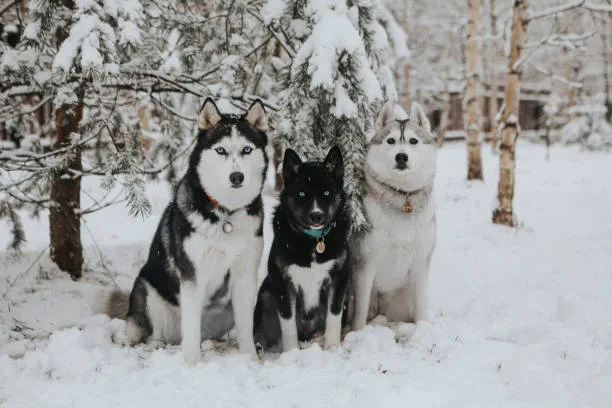
Ensuring Consistency in Training and Socialization
Consistency in training and socialization is crucial for ensuring lasting behavioral change in Huskies. Inconsistent training can lead to confusion for your husky and may exacerbate aggressive tendencies.
By maintaining a consistent approach to training and socialization, you can effectively communicate what is and isn’t acceptable behavior. This will help your husky understand the boundaries and expectations, reducing the likelihood of aggressive behavior towards small dogs.
Consistency also establishes a sense of routine and predictability for your husky, which can contribute to a more stable and well-adjusted temperament. When it comes to addressing aggression in huskies, consistent training and socialization play a pivotal role in fostering positive behavioral changes and preventing potential incidents.
So, by maintaining consistency in your training and socialization efforts, you create a structured and secure environment that supports your husky in adapting to appropriate and non-aggressive behaviors. This consistent approach is essential for the long-term well-being and harmony of your husky within your household and in interactions with other dogs..
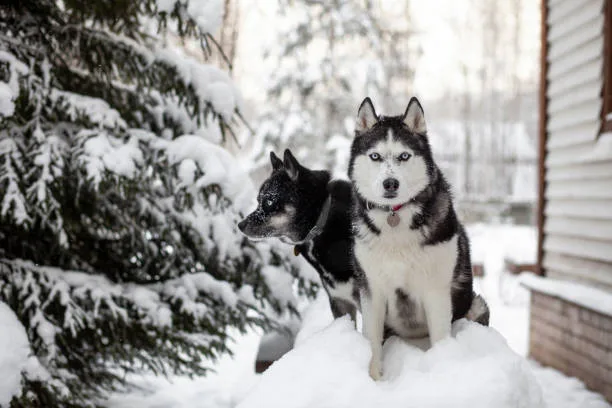
Mitigating Size-Related and Inter-Dog Aggression
Huskies may exhibit size-related and inter-dog aggression due to various factors, such as a lack of early socialization with other canines and misinterpretation of dog body language. This can lead to conflicts with smaller dogs as the Husky may not understand or recognize the signals being communicated.
To address this, it’s crucial to prioritize early socialization to familiarize them with dogs of different sizes and temperaments. Additionally, incorporating obedience training plays a pivotal role in minimizing aggression.
Understanding the pack mentality of Huskies is also essential; they have a hierarchical nature and recognizing this can aid in managing their interactions with smaller dogs effectively. By incorporating these measures, owners can work towards preventing and addressing size-related and inter-dog aggression in Huskies, creating a harmonious environment for all dogs.
Moreover, obedience training plays a critical role in minimizing aggression. Huskies should be taught to respond to commands effectively, allowing owners to manage their behavior and interactions with smaller dogs.
This training can promote impulse control and aid in preventing potentially aggressive behavior.
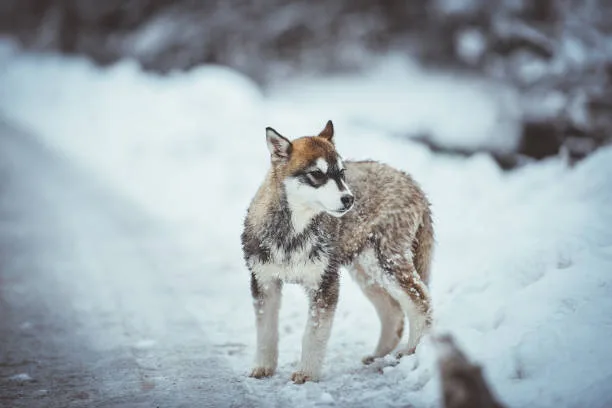
Managing Predatory Instincts through Behavioral Training
Huskies have a natural instinct to exhibit predatory behavior, which can manifest as aggression towards small dogs. This behavior, often termed as “small dog syndrome,” can be effectively managed through behavioral training.
Training techniques focused on teaching bite inhibition can help reduce the likelihood of aggression. Additionally, involving an animal behaviorist can be beneficial in addressing and managing these predatory behaviors.
Desensitization techniques can also play a significant role in modifying a Husky’s response to small dogs, ultimately creating a safer and more harmonious environment for all pets involved. It’s crucial to understand the root of this behavior and employ targeted training methods to effectively manage a Husky’s predatory instincts.
Why does my husky attack small dogs can be managed through the appropriate behavioral training and professional guidance..
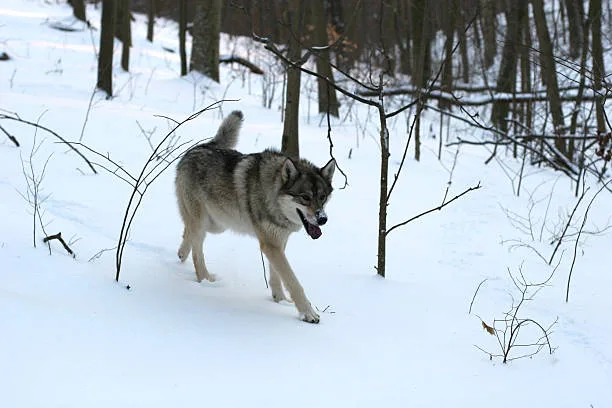
Importance of Proper Exercise and Stress Reduction
Proper exercise is crucial for Huskies as it plays a vital role in their overall well-being. Huskies are an energetic and active breed that requires ample physical activity to maintain their mental and physical health.
Insufficient exercise can lead to pent-up energy, which may manifest as stress, anxiety, and even dominance issues in Huskies. These factors can contribute to aggressive behavior, including their tendency to attack small dogs.
By ensuring that Huskies receive the necessary exercise, owners can help reduce their stress levels, minimize anxiety triggers, and mitigate dominance issues that may otherwise result in aggressive behavior. Responsible ownership entails recognizing and fulfilling the breed’s high energy requirements through regular, vigorous exercise routines that cater to the Husky’s active nature.
Therefore, providing proper exercise not only promotes the Husky’s well-being but also plays a significant role in preventing incidents of aggression towards smaller dogs. Why does my husky attack small dogs can significantly be mitigated by addressing their exercise and stress management needs effectively..
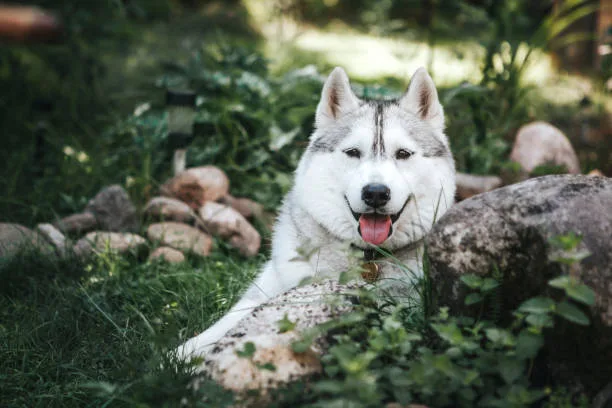
Influence of Neutering on Aggression and Prey Drive
Neutering is a significant factor in influencing a Husky’s aggression levels and prey drive. It plays a vital role in addressing behavioral concerns and fear-based reactions that may lead to aggressive responses during dog-to-dog interactions.
Neutering can help in mitigating territorial behavior and fostering more predictable responses in Huskies. By analyzing the effects of neutering, it becomes evident that it can contribute to a more balanced and calmer demeanor in Huskies, thus reducing the likelihood of aggressive behavior towards smaller dogs.
Overall, the decision to neuter a Husky can positively influence their aggression levels, prey drive, and interactions with other dogs. Why does my husky attack small dogs is markedly influenced by the decision to neuter, mitigating fear-based reactions and fostering more predictable responses during dog-to-dog interactions..
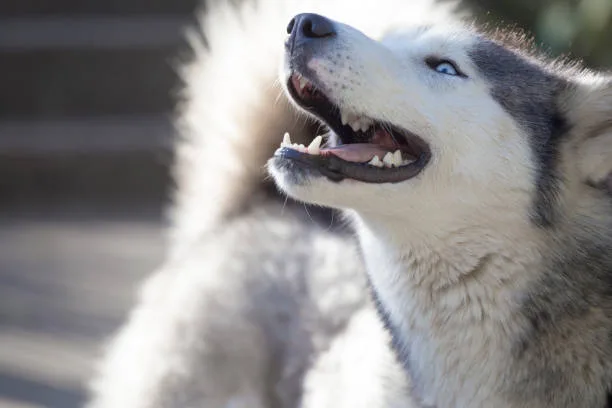
Promoting Positive Interactions through Dog Park Etiquette
Dog parks can be a great place for Husky owners to socialize their pets, but it’s essential to follow certain guidelines to prevent aggression management issues. Firstly, always maintain a keen watch over your Husky to ensure their interactions with other dogs remain positive.
Use positive reinforcement techniques such as treats and praise to reinforce good behavior, and intervene immediately if any signs of aggression arise. Additionally, responsible ownership plays a crucial role in fostering good dog park etiquette.
Always clean up after your Husky, respect the rules of the park, and be mindful of other dog owners’ preferences for their pets’ interactions. By following these practices, Husky owners can greatly reduce the likelihood of incidents of aggression and make the dog park experience enjoyable for all..
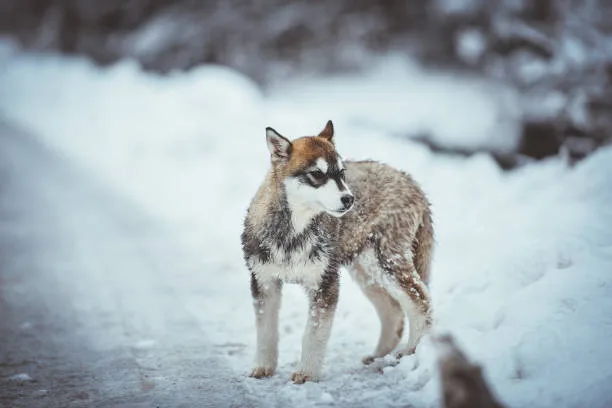
The Role of Spaying/Neutering in Aggression
Spaying or neutering your Husky can significantly influence their aggression levels and prey drive towards small dogs. Neutering may reduce the likelihood of your Husky engaging in aggressive behavior towards smaller dogs.
It can also help mitigate fear-based reactions and territorial behavior, leading to more predictable responses during dog-to-dog interactions. Additionally, spaying or neutering your Husky can play a role in decreasing their overall level of aggression.
This can create a safer environment for interacting with smaller dogs, as it may help to temper any aggressive tendencies. It’s important to consult with a veterinarian to determine the best course of action for your Husky and to understand the potential impact of spaying or neutering on their behavior and interactions with smaller dogs.
Remember, altering your Husky is just one component of a comprehensive approach to addressing aggression towards smaller dogs..

Leave a Reply